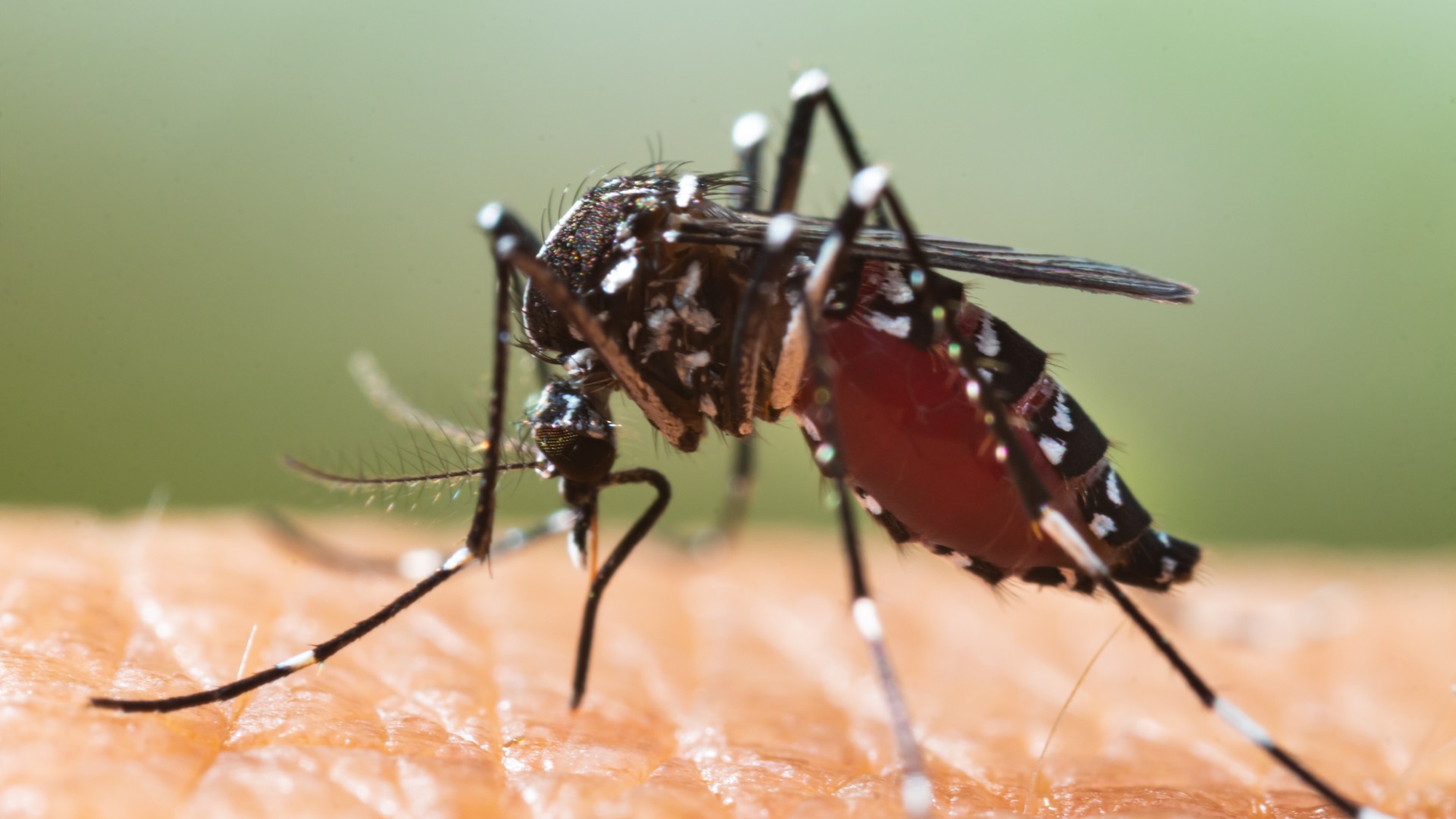Americans face a higher risk of dengue this year, CDC warns
The CDC has issued a new health alert as global cases of dengue fever soar.

People in the U.S. are at a higher risk of catching dengue fever this year, the Centers for Disease Control and Prevention (CDC) warns.
In a new health alert issued on Tuesday (June 25), CDC representatives said that people should be extra vigilant about this potentially deadly viral infection, which is spread to people via the bite of an infected mosquito.
U.S.-based doctors should also be on the lookout for the disease, particularly in travelers returning from places where it regularly spreads. As of June 24 this year, 745 U.S. travelers have been diagnosed with dengue — a "higher-than-expected" number. By comparison, an average of about 1,600 travel-related cases were reported for the full year in 2022 and 2023, and historically, annual numbers were lower than that.
Common dengue symptoms include a fever with aches and pains, nausea and a rash that starts out flat and red and then later looks similar to a measles rash. Symptoms usually develop within two weeks of a person being bitten by an infected mosquito, and in most people, these symptoms disappear within a week.
Related: Scientists release genetically modified mosquitoes to fight dengue in Brazil
However, infants younger than 1 year old, pregnant people, adults over age 65 and people with certain medical conditions, such as diabetes, are at an increased risk of developing severe dengue, which can be fatal. This life-threatening condition can cause blood vessels to leak and the number of clot-forming cells in the blood to fall, leading to shock, internal bleeding and organ failure.
There is no specific treatment for dengue fever, but drugs such as painkillers can help manage a patient's symptoms, and in severe cases, supportive care in a hospital and blood transfusions may be needed.
Get the world’s most fascinating discoveries delivered straight to your inbox.
The CDC's new warning comes as dengue cases rise worldwide this year.
Dengue fever is endemic to tropical and subtropical regions of the world. This year, various countries, such as Argentina and Brazil, have reported higher-than-usual case numbers. Across the Americas, more than 9.7 million dengue cases were reported between Jan. 1 and June 24 this year — twice the amount recorded in the whole of 2023.
Dengue fever is endemic in six U.S. territories and freely associated states: Puerto Rico, American Samoa, the U.S. Virgin Islands, the Federated States of Micronesia, the Republic of the Marshall Islands and the Republic of Palau. Earlier this year, Puerto Rico declared a public health emergency over surging cases of dengue fever, which now total 1,498, according to the CDC. This has already surpassed the total figure for 2023, which was estimated to be 1,293 cases.
Local transmission — meaning the disease has been detected in people who have not recently traveled to a region where dengue is endemic — is usually rare in the U.S. However, small outbreaks or sporadic cases have previously been recorded in Florida, Hawaii and Texas, and in the past two years, local transmission of dengue has been confirmed in Arizona and California respectively.
As global cases of dengue soar, experts expect that cases in travelers returning to the U.S. from dengue-endemic areas will also rise.
"We expect that most dengue cases in the U.S. this summer will occur among travelers returning from areas where outbreaks are happening," Dr. Albert Ko, a professor of public health at Yale University, told Live Science in an email.
"But we need to be prepared for transmission in regions of the U.S. where the virus has circulated in the past, such as Puerto Rico, and parts of Florida, Texas and California," he said. "We also need to be on the lookout for dengue in regions of the U.S. where transmission hasn't been detected, but the mosquito that can carry the virus is present and has expanded because of increasing climate change."
Mosquitoes in the genus Aedes can carry dengue, and higher temperatures can expand the range of such mosquitoes and also affect their breeding and biting habits.
The CDC recommends taking measures to help prevent mosquito bites, such as wearing loose-fitting, long-sleeve pants and shirts while outdoors, using EPA-registered bug sprays, and controlling the spread of mosquitoes at home using window screens to stop the insects from getting indoors.
Anyone with a fever or dengue symptoms who has lived in or traveled to a region with outbreaks should seek medical care, the agency noted.
This article is for informational purposes only and is not meant to offer medical advice.
Ever wonder why some people build muscle more easily than others or why freckles come out in the sun? Send us your questions about how the human body works to community@livescience.com with the subject line "Health Desk Q," and you may see your question answered on the website!

Emily is a health news writer based in London, United Kingdom. She holds a bachelor's degree in biology from Durham University and a master's degree in clinical and therapeutic neuroscience from Oxford University. She has worked in science communication, medical writing and as a local news reporter while undertaking NCTJ journalism training with News Associates. In 2018, she was named one of MHP Communications' 30 journalists to watch under 30.


